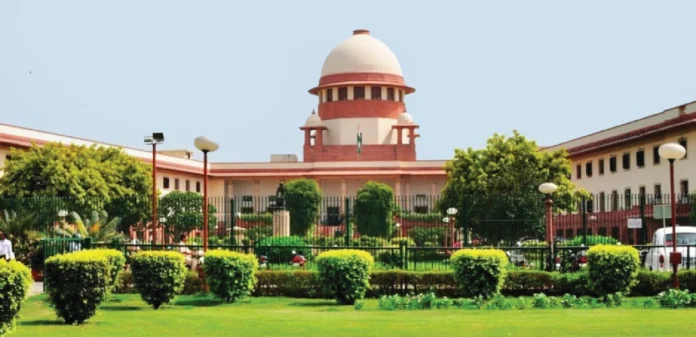After giving permission for the appointment of ad-hoc judges to reduce pendency in High Courts, the Supreme Court has now shifted its focus on new methods, means and modes to decrease the caseload of 4.6 crore in district courts across the country.
Chief Justice of India Sanjiv Khanna, along with two most senior judges, Justice B R Gavai and Justice Surya Kant, will on Saturday participate in a four-session interaction programme with senior district judges coming from across the country to analyse the status of implementation of 2024 Action Plan prepared by National Court Management Systems Committee.
The sessions will focus on streamlining case management, improving human resource utilisation and ehancing the use of technology to reduce pendency.
The first session chaired by CJI Khanna and comprising Justices A S Oka, B V Nagarathna and Dipankar Datta, will identify bottlenecks in case disposal and devising strategies to reduce the backlog of cases at different levels.
It will address the issues faced by family courts and special courts and explore the feasibility of establishing evening courts, as well as expeditious disposal of cases through Alternate Dispute Resolution (ADR) mechanisms and similar topics.
As per the data available on the National Judicial Data Grid, of 4.6 crore pending cases, around 3.4 crore cases are less than one year old.
The trial courts disposed of 43 lakh cases in December, as against the institution of 25 lakh fresh cases.
The second session chaired by Justice Gavai with Justices P S Narasimha and K V Viswanathan would strategise on streamlining and categorisation of cases, increased use of information technology to expand the virtual court footprints and opening of more e-Sewa Kendras/Kiosks to facilitate e-filing of cases by lawyers and litigants.
Third session chaired by Justice Surya Kant with Justice J K Maheshawri and Justice S Dhulia will debate and devise plans for optimum use of human resources in the district judiciary while ensuring timely filling up of vacancies in judicial posts, empanelment of competent public prosecutors and aim for improving the legal aid machinery.
The final session, having the CJI, Justice Vikram Nath, Justice M M Sundresh and Justice Bela Trivedi, will focus on career progression of judicial officers and mentoring of trial judges by inspecting High Court judges in addition to devising training programmes in sync with the dynamics of litigation.


